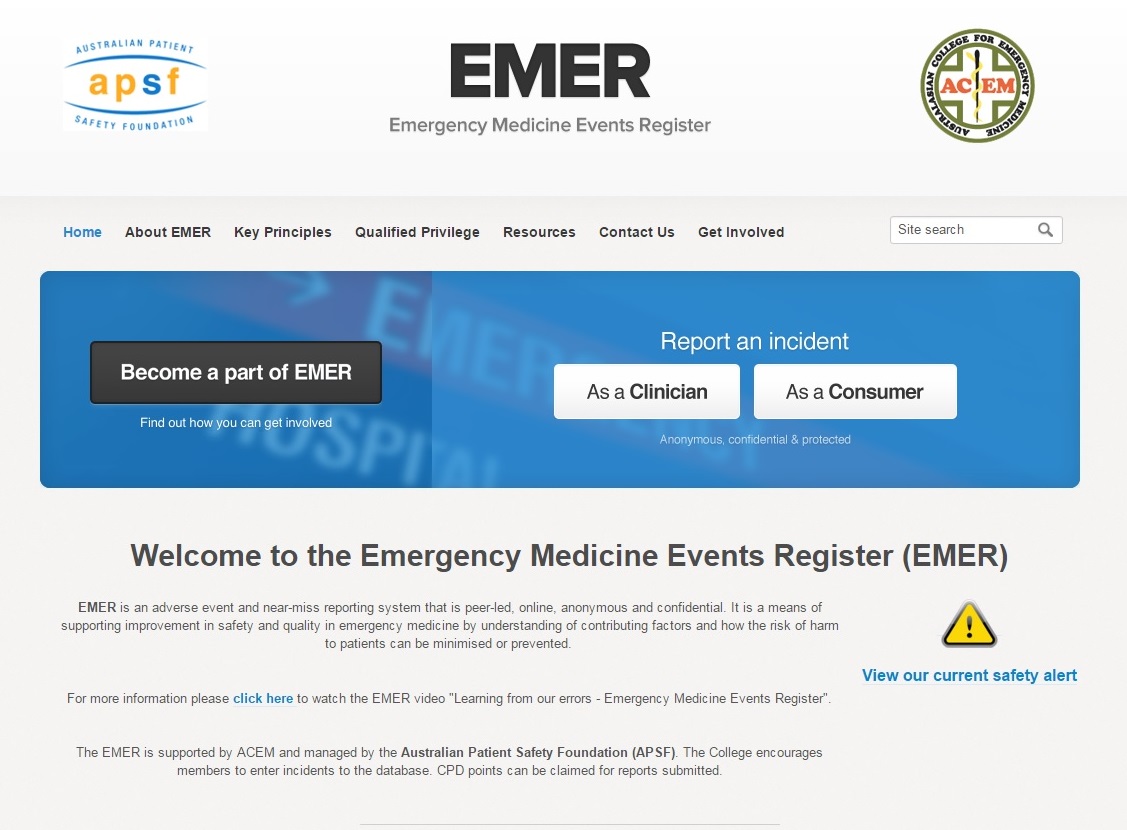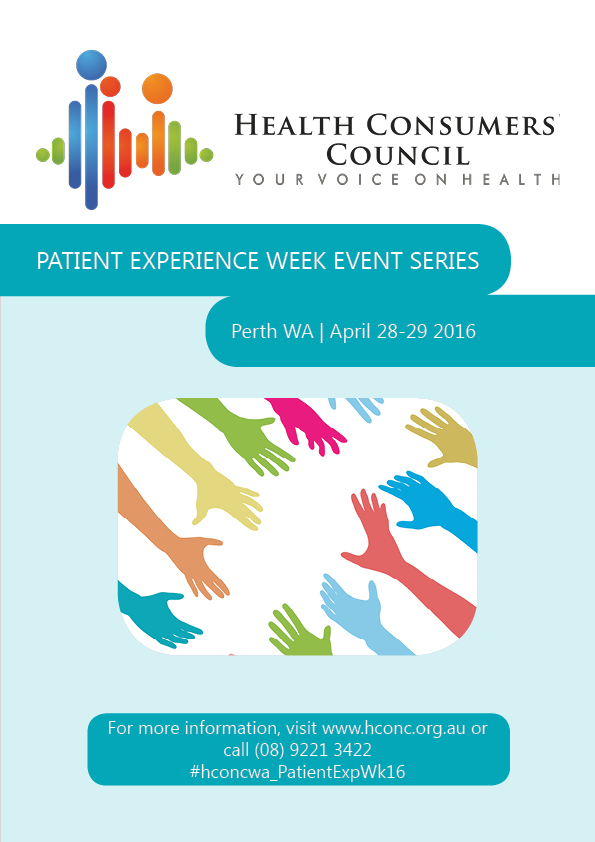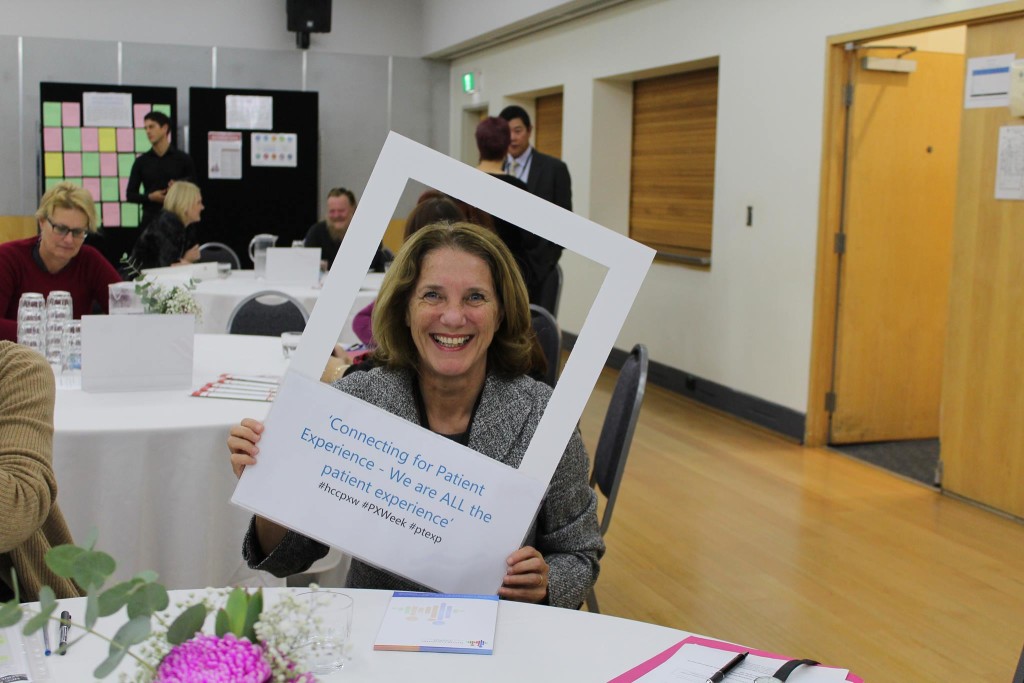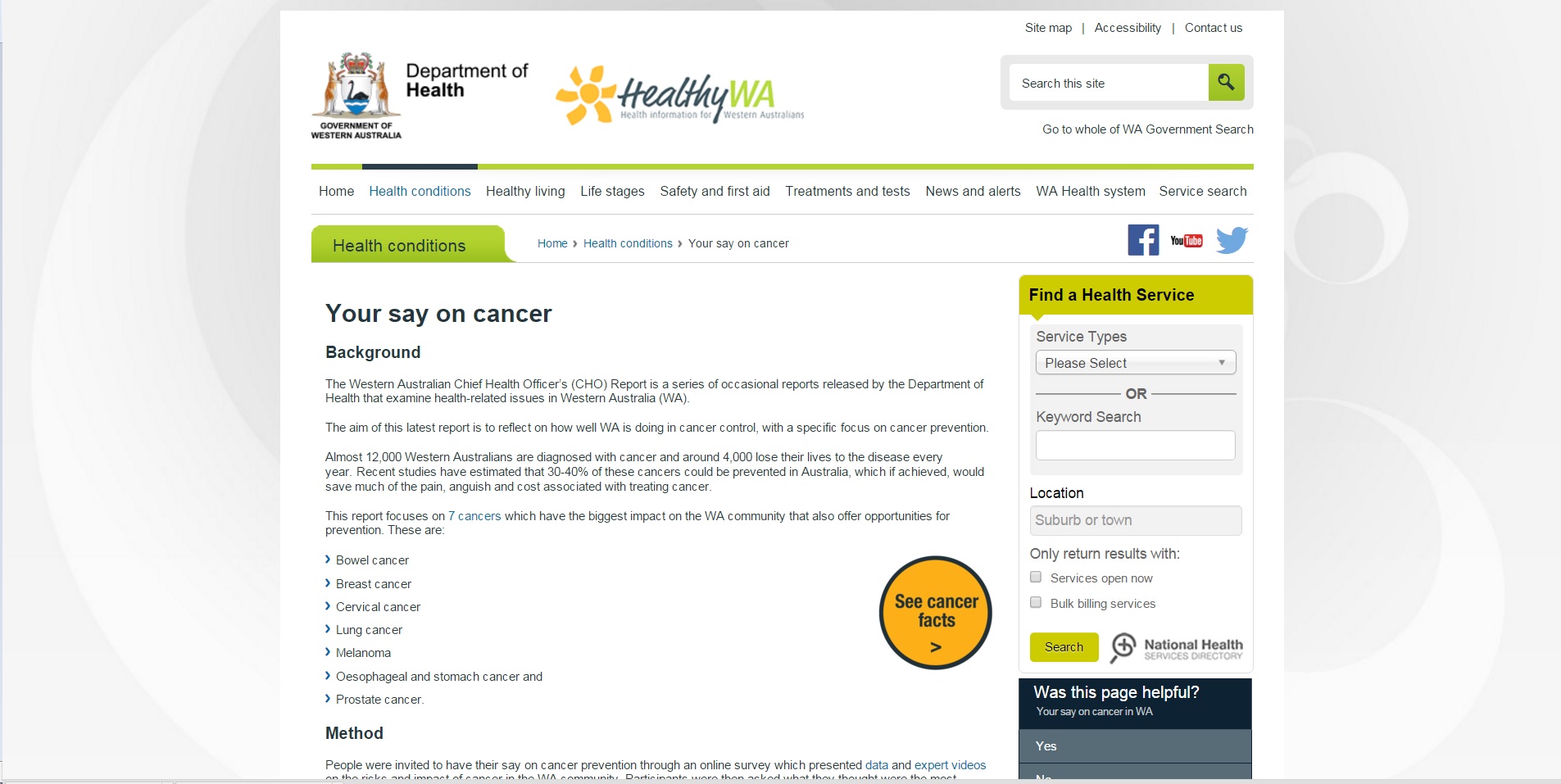
1 in 10 diagnoses made by a doctor, is thought to be incorrect. It is estimated that each year in Australia 8,000 patients die from medical error. 300,000 hospital admissions are associated with potentially preventable adverse events. The Emergency Medicine Events Register otherwise known as EMER, was developed so that consumers and clinicians could report adverse incidents. To allow clinicians to learn from their mistakes and create an open culture of discussing patient safety.
Speaking at ‘Organisational Approaches to Implementing Patient Experience: Lunch Box Session’ from EMER are Anita Deakin and Dr Carmel Crock (Royal Victorian Eye and Ear Hospital & ACEM). ‘EMER is an adverse event and near-miss reporting system that is peer-led, online, anonymous and confidential. It is a means of supporting improvement in safety and quality in emergency medicine by understanding of contributing factors and how the risk of harm to patients can be minimised or prevented.’ (emer.org.au)
An important factor to practice improvement in the Emergency Department (ED) requires hearing about the care experiences of patients and their family member or carer. Their experience and perspective (whether it be good or bad) is a key aspect to ensuring patient safety and high quality care in all areas of health care. It is important that health care staff are able to learn from consumer’s experiences to ensure they are providing the best quality of safe health care.
The following is an interview with Anita Deakin and Dr Carmel Crock:
Why did EMER consider consumer reporting?
Patients have a very different perspective to medical professionals – they see things that we don’t necessarily see and they are an essential part of the team. The patient voice is extremely important and has often been overlooked in patient safety endeavors.
What involvement did consumers have in developing EMER?
From the inception of EMER we have had a consumer advocate on the Steering Group. Every step of the way we have considered how EMER could benefit consumers and how best we could engage them in the process. When we decided to introduce a consumer portal into EMER we involved consumers in developing the content and in testing it.
How does EMER improve patient experiences?
We are hoping it will improve patient experience by changing the culture of emergency medicine to openly discuss patient safety concerns within the specialty. We want to hear the patient’s voice.
Once the data has been collected, compiled and analysed, are the findings conveyed to the health services to facilitate system change in health care?
Once the data has been collected, compiled and analysed the findings are fed back to the specialty so that trainees and specialists get to hear about the types of incidents that are occurring in Emergency Departments. Some of the ways that we provide feedback is by writing patient safety alerts, journal articles and conference presentations both nationally and internationally.
If so what mechanism is used to facilitate system improvements?
We look for patterns or “common themes” within the incidents reported and feed this information back to the Australasian College for Emergency Medicine (ACEM) that is responsible for training emergency medicine specialists. In this way the college is able to address these themes in their education and training.
Why is it important that consumers report these adverse incidents and what benefit they get by reporting them? Why did EMER think it was important to include consumers in the reporting of incidents? I understand that this is revolutionary and that nothing similar is being conducted elsewhere.
It is important for consumers to report adverse events so that system changes can be made to make Emergency Departments safer for all involved. Often consumers see things that clinicians aren’t aware of, or see it from a different perspective. The consumer and the clinicians are both essential team members in the patient safety quest.
The EMER model works in the following way:
Identify – Report – Improve
Identify risks to patient safety
The types of errors that EMER want reported into the system are any incident in the emergency department that either did cause harm or could have caused harm to a patient. This would include things such as diagnostic error, errors around procedures, medication error, errors around clinical handover and safe transfer of patients from the emergency department.
EMER records the serious incidents, but also near misses, good saves, and adverse events. Collecting near misses is very important because for every adverse event there are 10 near misses.
EMER want Emergency doctors and nurses to discuss error openly, they want them to think about patient safety, to think about how things could be done better. To discuss incidents with their supervisors, with medical students, with nurses, to create an open culture of discussing patient safety and error.
Report – Report adverse events and near misses.
The anonymous online system is easy to use and only requires five minutes to enter the incident. Everyone involved with the incident from the consumer to the clinician are able to enter the information required.
When the information is collected it is classified using the Advanced Incident Management System (AIMS), a tool that was used to develop the international classification for patient safety.
Improve – Inform clinical practice and system change
EMER provide immediate feedback to those who report an incident. Once they have read the report it takes them to a thank you page which provide information about the incident which includes a simple graphical representation of the data. It also includes an incident of the month, which provides users an example of what other people are reporting and information that is of interest to the research team.
Once the incidents have been classified using the Advanced Incident Management System (AIMS), specialists from multi-disciplinary groups then review the incidents to determine how they could have been prevented.
To find out more EMER register for the free session ‘Organisational Approaches to Implementing Patient Experience: Lunch Box Session’ on Thursday April 28, 2016. Sponsored by Illuminance Solutions and Empower ICT.
Sources:
- Anita Deakin
- Dr Carmel Crock, Royal Victorian Eye and Ear Hospital & ACEM










